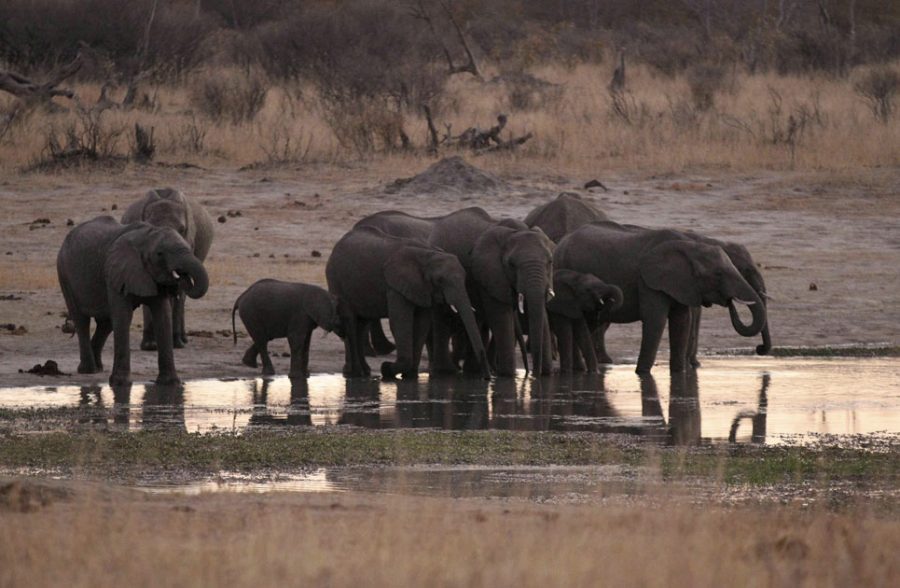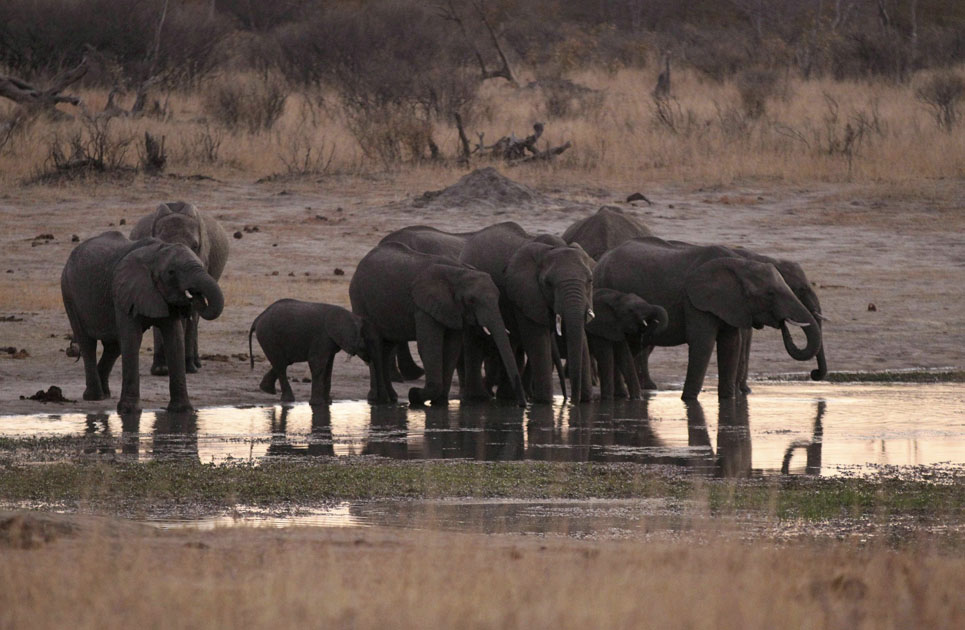
55 Elephants Already Died from Starvation During Drought in Zimbabwe
HARARE – At least 55 elephants have died in a game park in western Zimbabwe since September from starvation caused by a severe drought, the wildlife agency said on Monday. Zimparks spokesman Tinashe Farawo said the animals had died near water holes dotted around the Hwange National Park, a sign that they had traveled long […]

HARARE – At least 55 elephants have died in a game park in western Zimbabwe since September from starvation caused by a severe drought, the wildlife agency said on Monday.

Zimparks spokesman Tinashe Farawo said the animals had died near water holes dotted around the Hwange National Park, a sign that they had traveled long distances to access water.
Investigations showed that at least 55 elephants had died from lack of food and water in the park, which holds the biggest elephant herd of 50,000 animals.
“The situation is dire. The elephants are dying from starvation and this is a big problem,” Farawo said.
Farawo said there was “massive destruction” of vegetation in Hwange caused by elephants, which were also foraying in villages near the game park, increasing human-widllife conflict.
More than 200 people have died from elephant attacks in the past five years, according to Zimparks (Zimbabwe Parks and Wildlife Management Authority).
The agency was looking to drill more boreholes in Hwange because some existing ones had dried up but it lacked the money, said Farawo. The agency does not get funding from government.
Zimbabwe has in the past sold baby elephants to China saying it needed the money for conservation in Hwange, whose elephant population is three times the park’s carrying capacity.
In 2016, Zimbabwe put its wild animals up for sale, saying it needed buyers to step in and save the beasts from another devastating drought.
Zimbabwe, with support from neighbours Botswana, Namibia, South Africa, failed to lobby the Convention on International Trade in Endangered Species (CITES) to lift a ban on ivory trade at a meeting in August.
Zimbabwe says its ivory stockpile is worth $300 million, money it can use for conservation.
The El Nino-induced drought has cut maize output by more than half, leaving a third of the human population also needing food aid.
(Reporting by MacDonald Dzirutwe; Editing by Angus MacSwan)
